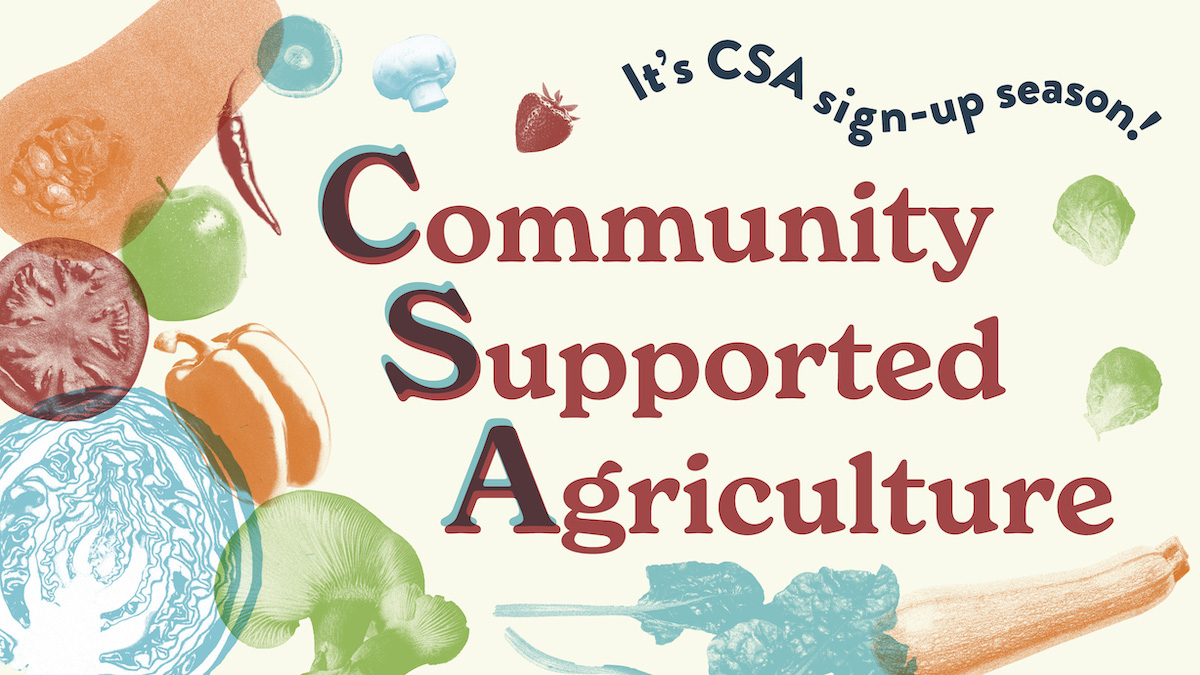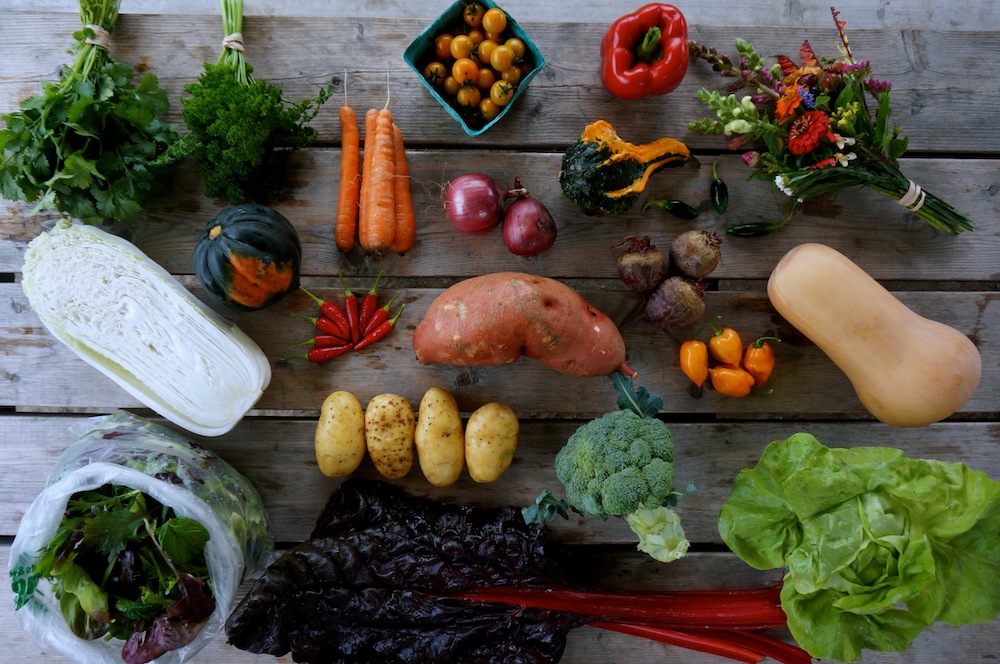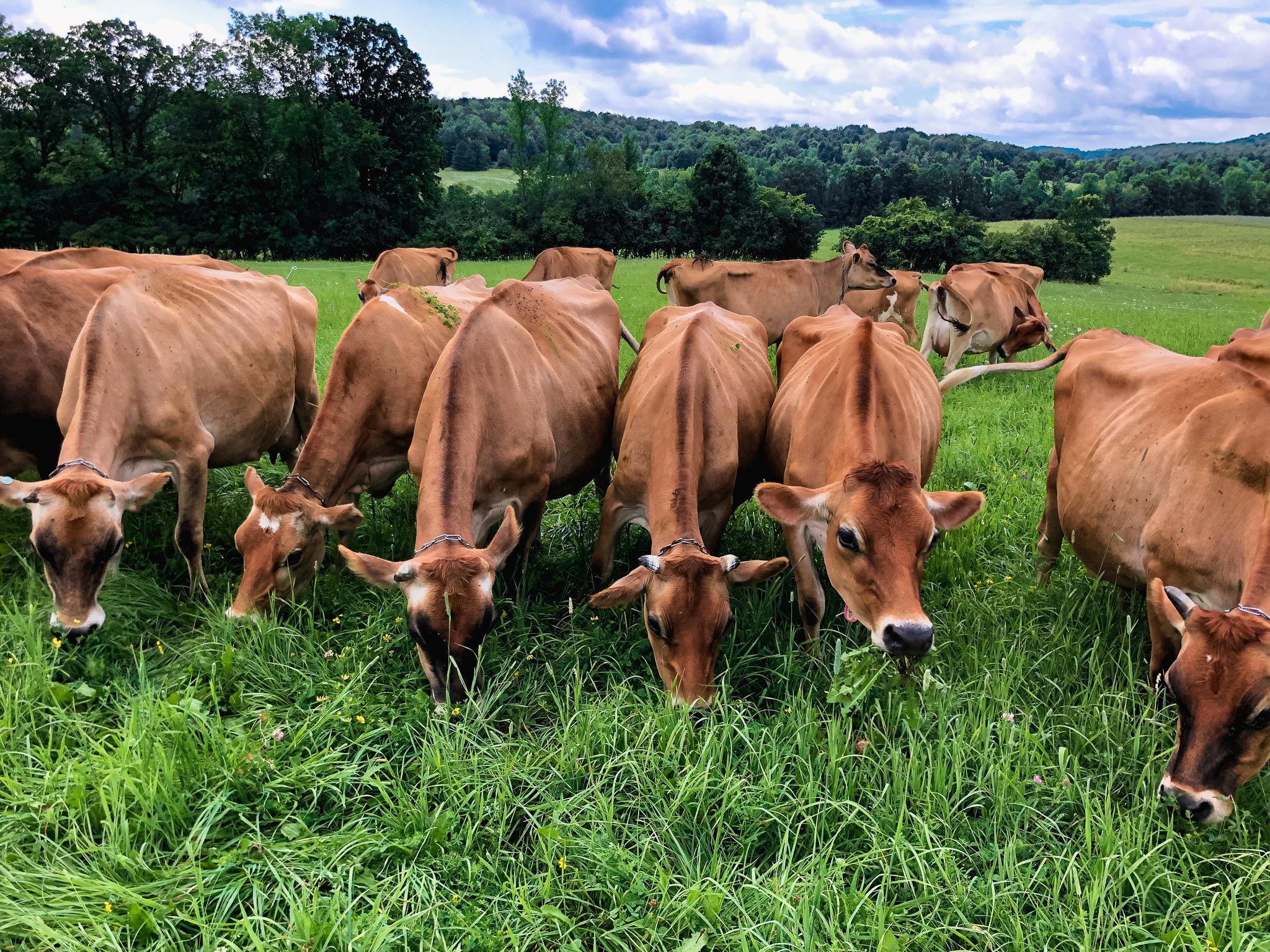
What is a CSA?
CSA—short for Community Supported Agriculture—is a sales model that connects people directly with farmers. CSA was created in response to a globalized food economy to provide consumers with the ability to secure local food and develop relationships with the people and places that produce that food.
When you sign up for a CSA membership at a farm, you pay in advance for a share of the farm's upcoming harvest. CSA members will receive a regular (often weekly) box of farm-fresh food all season long. In addition to having a steady supply of in-season produce, you directly support local farmers and typically spend less money than when buying produce from a store.
The Benefits of CSA
CSA members take pleasure in knowing where and how their food is grown and typically have an open line of communication with their farmer. CSAs invite members to join a farm community to share in the experiences of growing, eating, and celebrating delicious farm-fresh food.
The prepaid CSA arrangements are also a source of financial security for farmers and often result in lower prices for the consumer. With the cost of a CSA share, members help pay for seeds, equipment maintenance, and labor, while also helping to disperse the financial risks of crop failures. Subscribing to a CSA is a form of investment that allows farms to grow and become economically stable.
The CSA is a unique model of accessing local farm products that:
- Provides access to fresh, nutritious, and diverse farm products;
- Connects people of diverse life circumstances to the farmer, land, and food they eat;
- Supports the agricultural costs incurred by farmers through up-front member investment in the upcoming harvest;
- Provides fair market value to farmers through direct sales;
- Helps individuals and families to spend their food dollars locally.
Typical CSA Membership Experience
Remember, every farm is different! Most CSA shares are available during the summer months when Vermont weather is best suited for fruit and vegetable production. However, there has been an increase in the options available during other seasons. Moreover, while the majority of CSA shares provide fruits and vegetables, some farms now offer other farm products like eggs, cheese, bread, and meat. CSA shares also come in a variety of sizes and prices, and with a variety of pick-up options.
Here are some of the options to consider when you are looking for a CSA program:
- Share Size: Many farms offer small, medium and large shares for different sized households.
- Share Season: Most CSA shares occur in the summer; however, more ‘off-season’ shares that offer farm-fresh foods throughout the fall, winter, and early spring are popping up around the state.
- Share Products: Farm-fresh fruits and vegetables are the most typical products you will find in a CSA share; however, more programs are offering other local add-on foods including meat, eggs, cheese, and fresh baked and canned goods.
- Delivery vs. Pick-Up: Some CSA farms deliver their shares to pick-up sites in a number of towns; some will even deliver to your house! Other CSA farms ask members to come to the farm to pick-up their shares, which may include some pick-your-own products like fresh herbs, flowers, berries, etc. Furthermore, some programs provide CSA members with a farm debit card that can be used at the farm stand or farmers’ market booth.
- Share Cost & Payment: Share costs range from $100-$800 depending on the share size and product offerings. Limited-income households may be able to receive assistance with the cost through the NOFA-VT Farm Share Program. Some farms accept SNAP/3SquaresVT benefits and/or allow payment plans.

Find a CSA Farm Near You
Use NOFA-VT’s interactive directory to find a CSA near you that suits your life! Choose "CSA" from the list of features, and sort for other factors like location, season, products, payment options, and organic certification. To lower the barrier of access to CSAs, NOFA-VT subsidizes the cost for folks in need through our Farm Share Program.

